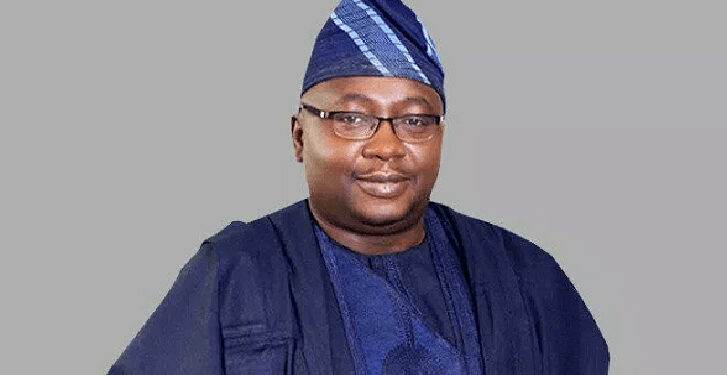- Says the Electricity Act, 2023 made provisions for the review of tariff twice a year
The Minister of Power, Adebayo Adelabu, has said the Federal Government is still paying subsidies on electricity despite the recent hike in tariff for Band A customers.
Speaking in an interview on Channels Television’s Politics Today on Thursday, he explained that the government has about N1.8 trillion to pay in electricity subsidy for 2024.
According to him, “the Electricity Act, 2023 made provisions for the review of tariff twice a year.”
He added that review of tariff is legal once it is within the exclusive responsibility of the Nigerian Electricity Regulatory Commission, NERC, stressing that the Act provides for review twice a year, every six months.
The Minister said if the government has been paying the tariff at the same level in the last two years, it logically means that someone has been paying the burden of the increases.
He said looking at the total production, transmission, and distribution cost, the Nigerian government bears 67 per cent of that cost before the increase in tariff for Band A customers.
He explained that the government pays 90 per cent but in terms of the total subsidy, about 67 per cent of the tariff, considering generation cost.
According to him, last year, it was about N720 billion, which was not fully funded, adding that the government has about N305 billion carried into this year, noting that if it retains tariff at the current level, about N2.9 trillion would be needed to subsidise electricity.
With the increase for Band A customers, he explained that the government will have a reduction of about N1.1 trillion, that is about N1.8 trillion in subsidy.
Adelabu explained that the fact that the tariff for Band A, 15 per cent of the total consumers, would increase by over 200 per cent does not necessarily translate into a 200 per cent increase in their electricity bill if they manage their power consumption.
He assured Band A customers of value for their money and that consumers on other bands would not be shortchanged by distribution companies as the regulators would not hesitate to wield their big stick on any of such discos.
He said the government has shifted its attention on discos inefficiently run and will not hold back in taking the appropriate steps in the interest of consumers, pointing out that by cutting down the inefficiencies of some operators in the sector, couple with the gains by the naira against the dollar in the last few weeks, tariff paid by Nigerians should moderate positively.
He said the tariff is flexible, explaining that if the naira does better in the forex market, the tariff may fall below the current N225 per kilowatt-hour.
The minister further explained that the government has been working on ramping up power generation from about 4,000 megawatts to 6,000 megawatts in the next six months, saying 25 per cent of Nigeria’s power generation is from hydroelectric power while the remaining 75 per cent is from gas plants.
He assured that President Bola Tinubu administration plans to decentralise power generation across states of the federation and strengthen transmission and distribution of energy to power Nigeria’s industrial transformation.
